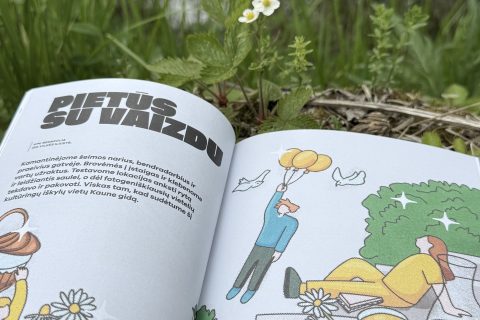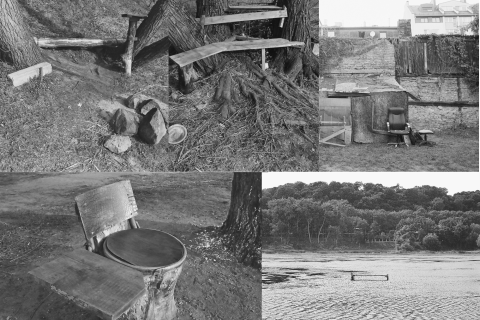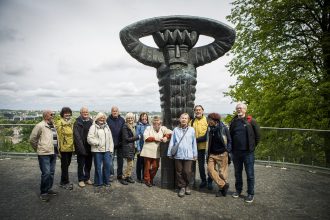I’ve probably known Artūras Naidenko since 2007. That’s when I started my first real job in a real restaurant – Senieji Rūsiai – and he was the head chef there. I remember it well: when I’d come to pick up an order, drum and bass would be playing in the kitchen, and one of the bartenders was a hardcore techno DJ Steriavas, from the then-active Kaunas Urban Beats scene.
Later, our paths would cross again and again in various gastronomic contexts. To me, he’s always seemed like part of the avant-garde of culinary creativity in Kaunas. That’s why, when thinking about the relationship between food and people, I wanted to hear his perspective on the city as a platform for gastronomic culture. We meet on a Sunday morning at Uoksas – a restaurant that rests on Sundays – and I listen to Artūras’ monologue.
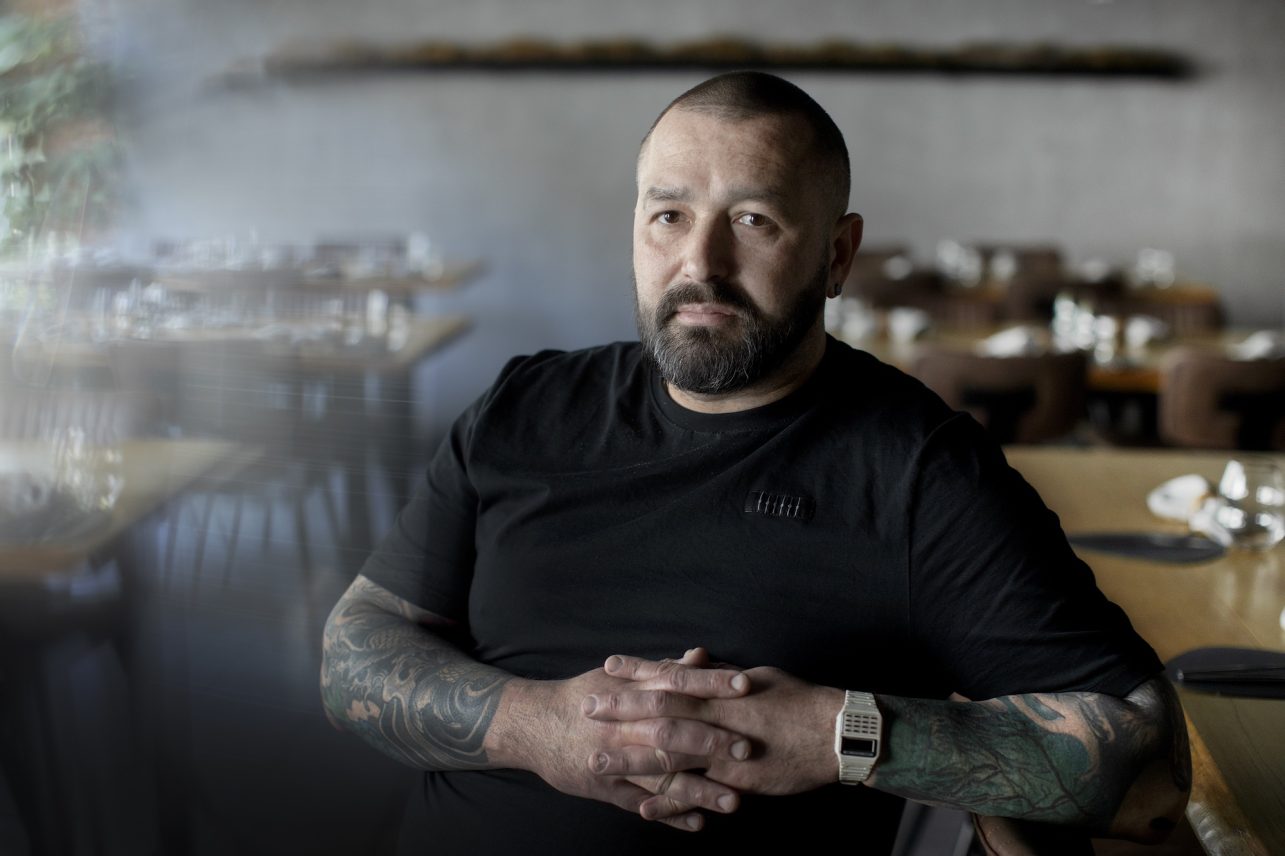
Restaurant life always follows its own course. Here, we have a clear seasonality: after the holidays – especially in April – there’s a short stagnation, and then everything picks up again. It’s a cycle, with waves that we’ve come to know very well. Uoksas will turn eleven this summer. It sounds strange because it feels like everything started just yesterday.
I’m from Kaunas, from the Eiguliai neighborhood. My relationship with the kitchen probably began when I dropped out of the conservatory. My father dreamed I would become a musician. I played the saxophone and finished music school, but in my first year of conservatory, I realized: this wasn’t my path. I didn’t belong there. And now, I probably couldn’t even play the saxophone anymore.
I’ve always been drawn to the kitchen, I loved to cook, and then I just decided to jump into it – completely intuitively, without much planning. It was just a desire to create. I’ve been here since I was eighteen. That’s more than half my life. In the beginning, everything was incredibly exciting: you dive in, you learn, you want to try everything. Like a sponge, you soak it all up. Later, I became a “hired” chef. It was a well-paid job, but creatively very limiting. When you want to realize your own vision, you often hit a wall: the owners don’t want to take risks, they just ask for Caesar salads and peace of mind. That’s when you reach a turning point: either you create your own place and take full responsibility, or you stay stuck.
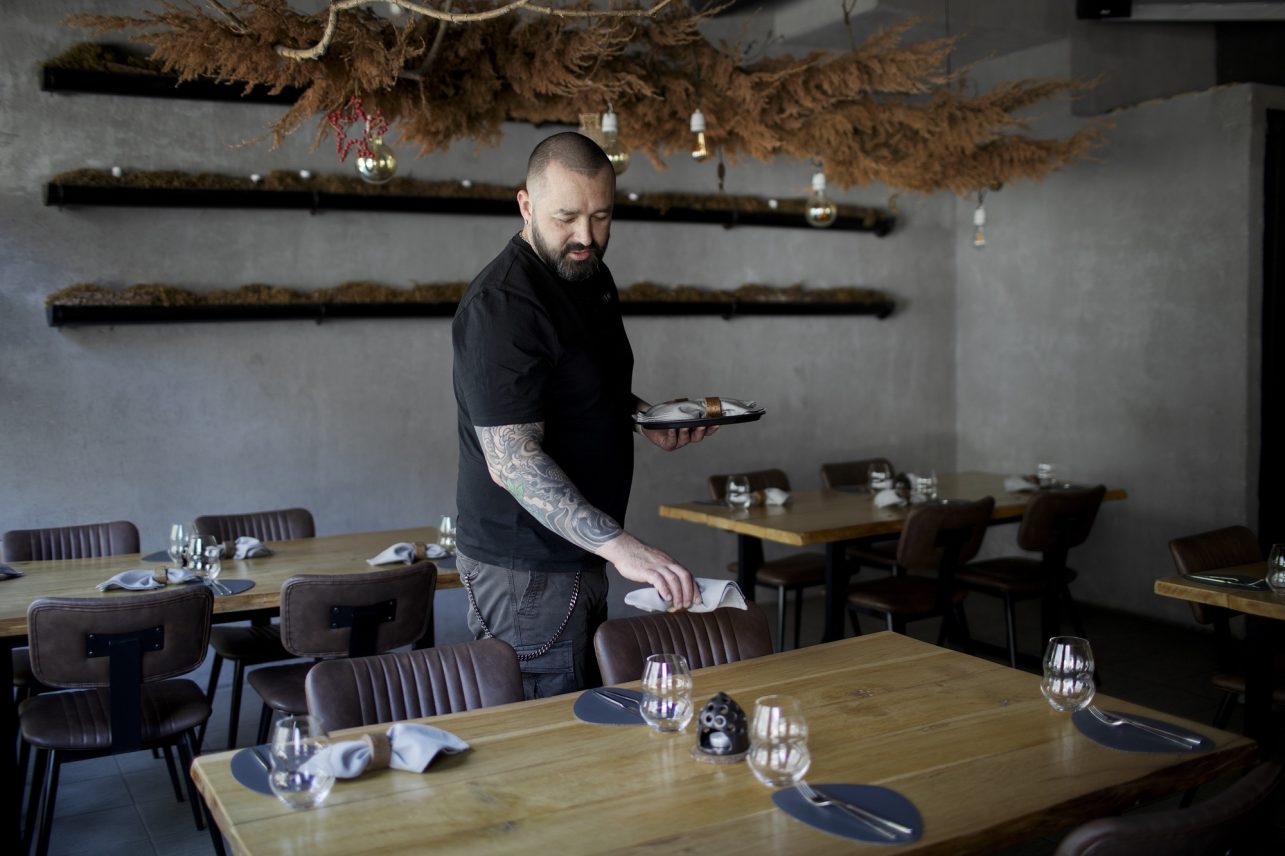
Food culture in Lithuania evolved alongside me. Historically, we were stuck: Soviet era obshchepit (public catering) left a deep mark, and restaurant culture simply didn’t develop. It was a frozen moment in time. In the 1990s, freedom came, but everyone worked as best they could. Real changes began after the 2000s. We started to travel more, and bring back ideas, and the first attempts to experiment and search for a unique voice began. After all, Kaunas twenty years ago and today are two completely different cities, and the same can be said about the restaurant scene. That transformation is very much alive and still ongoing.
Speaking of creativity – it’s always been there. But it needs the right conditions. Chefs who are curious and eager to learn are the ones pushing this scene forward, and alongside them, diners are becoming more discerning too. It’s a two-way process: we offer, and people learn to taste. It’s like with clothes: there’s casual, and there’s evening wear. The same with food – you don’t go to fine dining every day, but when you do, you expect something more. Not just the food – the experience.
Is a restaurant a luxury item? Not necessarily. In Italy or France, families go out for lunch in the city – it’s part of the culture. Here, economic factors, especially VAT, make the experience more expensive. But we also wanted to break stereotypes from the start: no tablecloths, no penguins with frogs. Solid oak tables, a bit of punk – that’s what our Uoksas was in 2014. We wanted to show that quality doesn’t have to come with a tie.
The kitchen as a creative playground? Yeah, but it needs balance. It’s not just about creativity, it’s also about bills, the team, and the guests. In the beginning, we were super driven, we used to change the menu almost every month, the more complex, the more textures, the better. Now we’re leaning towards a “keep it simple” direction. Not in a primitive way, but without going overboard. Creativity shouldn’t cross the line of common sense, you have to know when to stop.
Can a chef communicate a message through food that goes beyond just taste? Sometimes even saying “no” is a statement, for example, when someone wants a tasting dinner and lists a whole litany of what they don’t eat. Well, man, this is my restaurant. There’s no sign saying “vegan friendly” or “vegan menu” – that’s not our specialty. Sure, there are places like that and that’s great, go there. But why are you trying to impose your needs on someone else? I respect people’s choices, but you can’t walk into a theater and tell the actors how to perform. The same applies here: you come to us; you eat what we create. Of course, we have some flexibility – for vegetarians and pescatarians – but I don’t want to run a made-to-order kitchen.
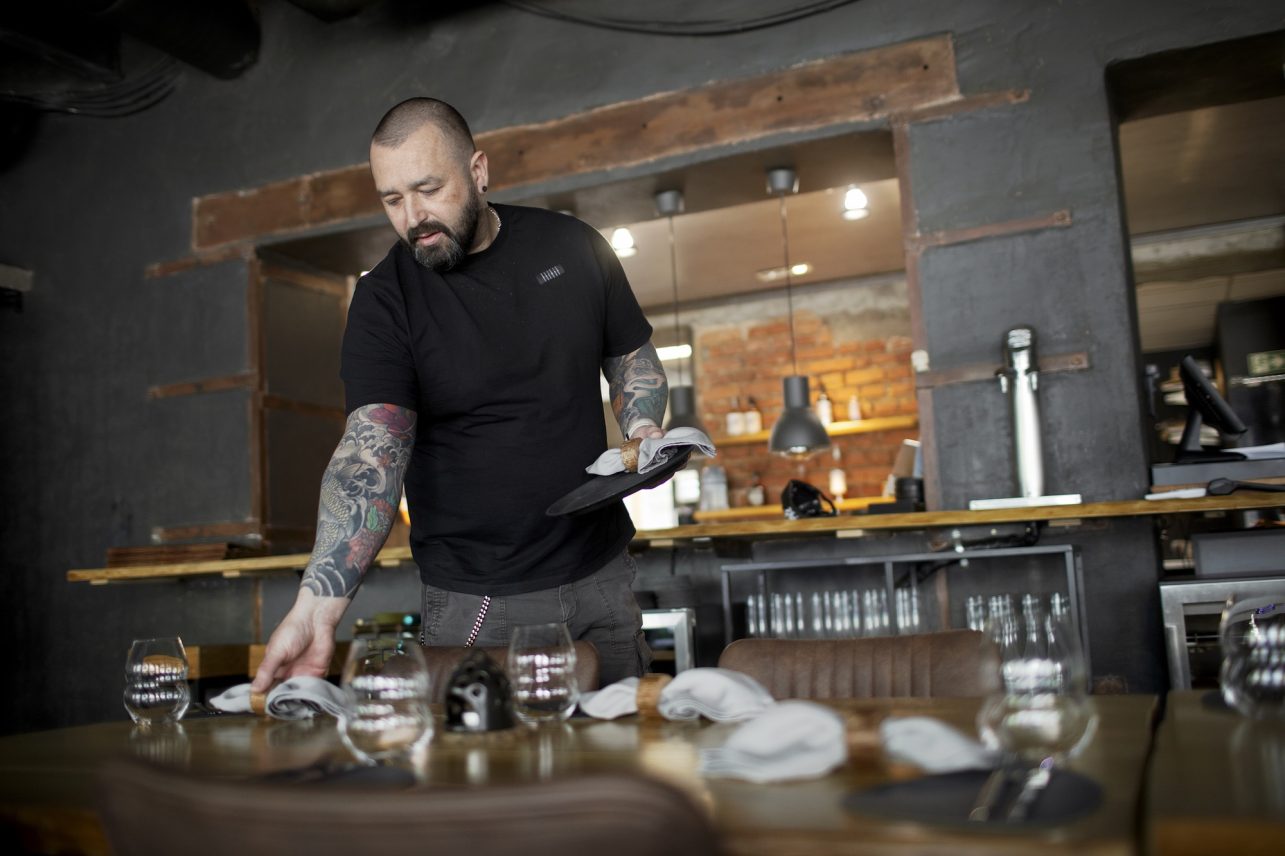
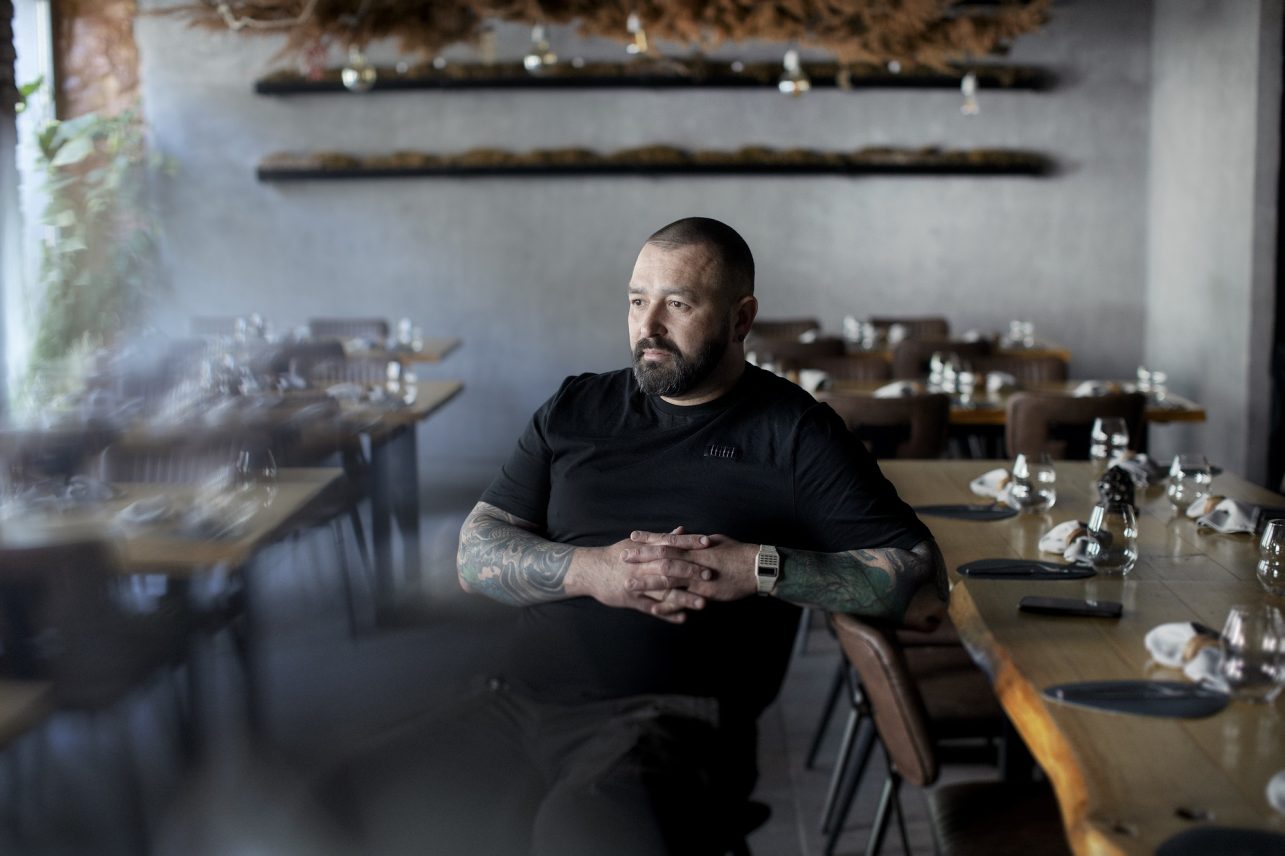
The Lithuanian, national motif in our cuisine emerged as a response to trends. When Denmark made waves with the New Nordic Cuisine, when Redzepi (René Redzepi is a founder and head chef of Noma in Copenhagen – ed.) took his knowledge from El Bulli and applied it to local products – that was inspiring. We asked ourselves too: why are we making things like cuttlefish pasta? Why not use our own local products? Of course, we’re not ultra-purists trying to make everything 100% Lithuanian, sometimes we’ll use scallops if they’re really good. But fish is a problem in our region. So, after some discussion, we defined our limits: the North Sea is our solution. It’s all about trying to navigate between what’s authentic and what’s possible.
There have been many collaborations over the years. We brought Martyn Meid from Palanga as a guest chef when he was still residing in the UK, and we did a dinner swap with the Vilnius restaurant Sweet Root: their team came to us, with their menu, and at the same time, we brought the whole team to them. Another colleague, Matas Paulinas, had a project in Copenhagen called Soil – trying to broadcast the idea of fine dining from a food truck. There was a cultural exchange there too: I came to Copenhagen for one weekend, we cooked together, and we created our theme right there in the food truck.
One of the more interesting international projects was Sumiksuoti, a meeting of electronic music and gastronomy that took place last autumn during the Lithuanian cultural season in Nantes, France. We spent a few nights with DJs Mantas (Pakas) and Žilvinas (Roads) from Lizdas Sound Institute. Such exchanges are good for clearing your head, getting out of your comfort zone. Only then do you realize where your limits lie.
Over the years, suppliers and farmers have become like family. There’s sentiment involved –you know that duck egg was hand-picked by that specific woman. Lithuanian farmers are becoming more confident, but it’s tough work: not everyone can handle it. Maybe one day I’ll have my own little garden, but not yet. We do have a greenhouse – we grow herbs. Some restaurants have gone further; a green Michelin star proves that it works. Urban gardening? Why not. If you have the time, passion, and people – it’s great.
A restaurant isn’t just about food. It’s an experience. From how you’re welcomed, to the music that’s playing, to how water is poured for you. You can eat at home, but in a restaurant, something more has to happen. I read the book The Art of the Restaurateur and it really lays out how every detail contributes to the whole. That’s the atmosphere. Invisible, but real.
Music is important. I play what I collect myself, indie, electronic, a lot of influences from my youth, and fresh discoveries. It sets the mood, the background, the tone. Like a soundtrack for a film.
The team consists of five people. Not many, but it’s all we need. We’ve refined things. At first, everything followed the traditional model: shifts, long and short weeks. But after the painful end of the Snobas project (in 2018–2019 the team had opened a restaurant called Snobas in the Arka business center in Kaunas – ed.), we realized we had to work differently. No lunch specials, no brunches. Just the essence. Only what we truly want to cook.
The pandemic was also a test, some restaurants closed; others never regained their footing. Some made a mistake; after receiving recognition, they doubled their prices. But you’re still the same chef, with the same menu, what’s changed? We didn’t do that.
Uoksas’ main customer is still Lithuanian. There are fewer tourists in Kaunas than in Vilnius. When Vilnius Airport was under renovation, there was a noticeable influx in Kaunas –imagine a full restaurant every weekend. It’s summer, super-hot, and the whole team is on vacation – that’s when we realized what real traffic feels like.
In 2016, we were included in the Scandinavian culinary guide White Guide, which was a significant event; together with Monte Pacis, we were the first ones from Kaunas. And last year, along with a few other Kaunas restaurants, we were included in the Michelin guide. That had been our dream. In our youth, we’d buy their books, trying to understand what that world was all about. And we became part of it. A huge achievement. And at the same time – a big responsibility.
Because in the end, it’s always the people who matter most. Who you eat with is more important than what you eat.
Some might see that responsibility as a limitation, but for me, it means freedom. Now I can cook dishes that might have once seemed too bold. The audience in Kaunas is conservative. In the beginning, when we worked on Vilniaus Street, theater folks used to celebrate with us after performances or premieres, and they’d say: “Respect for being so bold, doing that in Kaunas is tough.” And it’s true, even plays are received differently here. If it’s good, then it’s “as it should be,” but make a mistake, and you’ll hear about it. Everything becomes very brittle.
Kaunas, as a city, still follows a more conservative path. But after all these years, I know my audience well. I know what they expect from me. Sometimes I’ll prepare a more controversial dish, but I can defend my reasons: the Michelin plaque on the facade gives me creative freedom.
When I travel, I don’t search for restaurants in the Michelin guide, I just go where it seems interesting. Mostly to Copenhagen. Their approach still feels very close to my own.
In general, I no longer follow trends the way I used to. I read more books now. I love physical books; I collect them like others collect vinyl. One of my favorites is Relæ by Christian F. Puglisi. Very simple, but very powerful. And Alain Passard – his food made a big impression on me. He is a true master.
If we went to picnic on the curb this Sunday, I’d bring some toasted bread and lots of little things like antipasti. Not for the impression, but for the sharing. Because in the end, it’s always the people who matter most. Who you eat with is more important than what you eat.
Speaking of picnics, the idea is great, but somehow it doesn’t really catch on in Lithuania. During the interwar period, it was a trend; people used to picnic, especially in the city. The Soviet era killed that. There have been some attempts, like Open Kitchen, but that’s more of a dirty food vibe than a real picnic. I do eat outdoors when the conditions are right: on hikes and trips. It’s just that culturally we don’t quite have that habit yet. But I wish we did.

